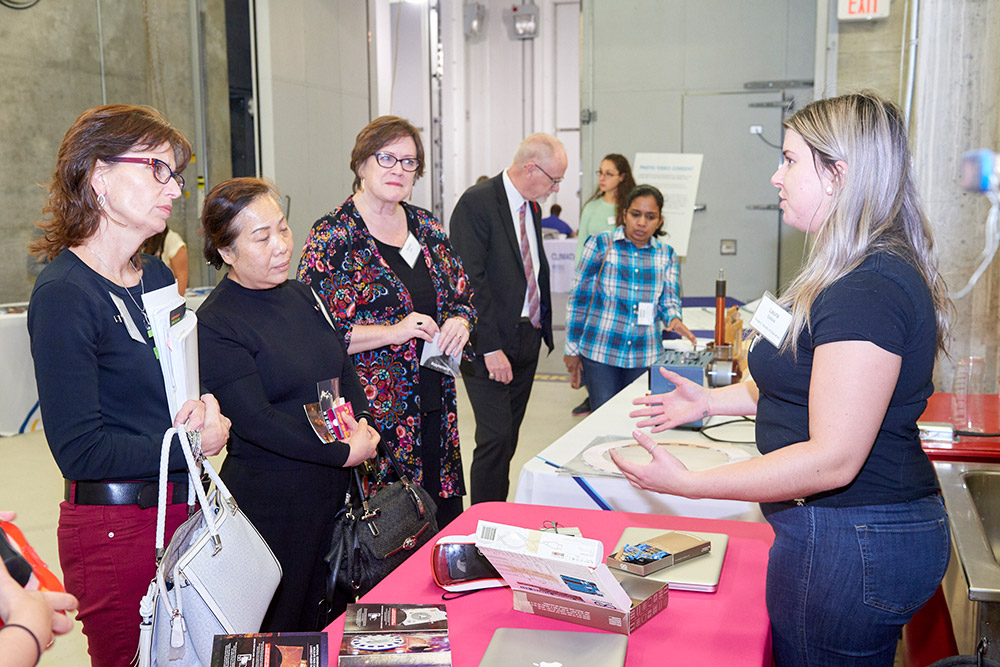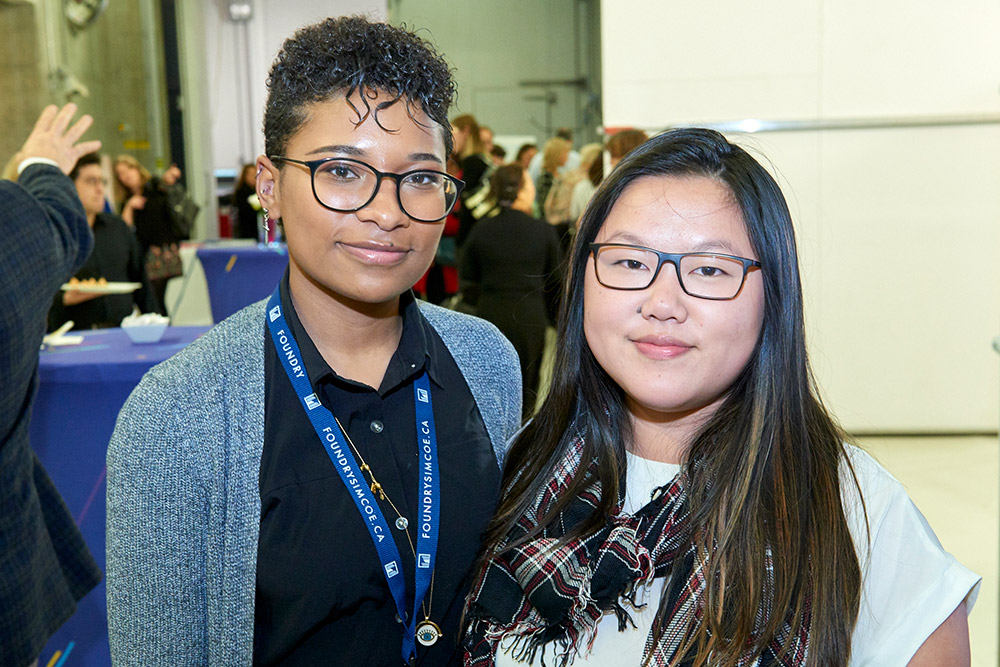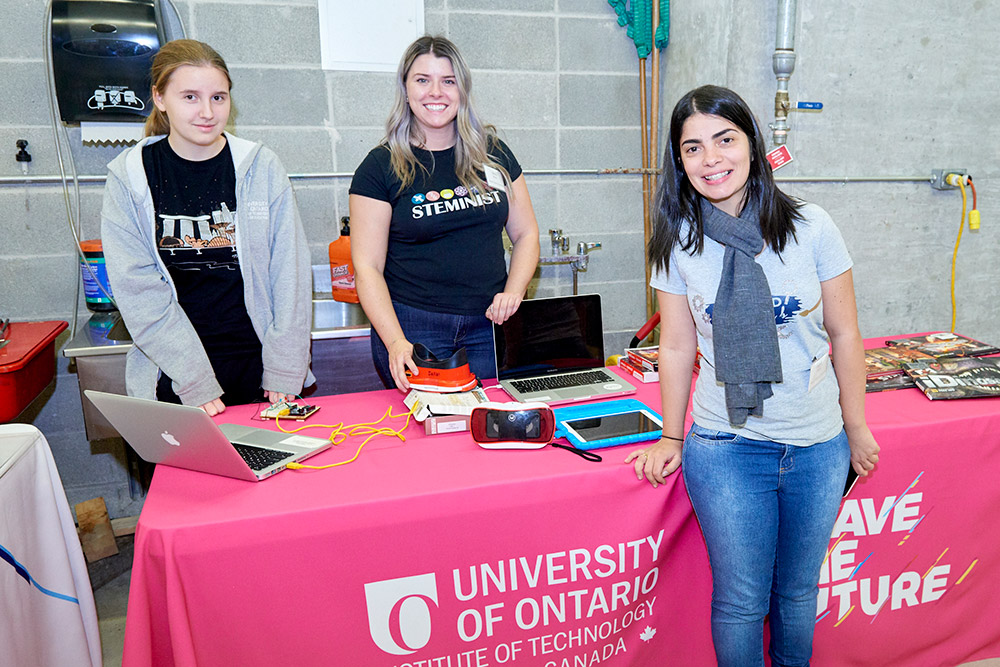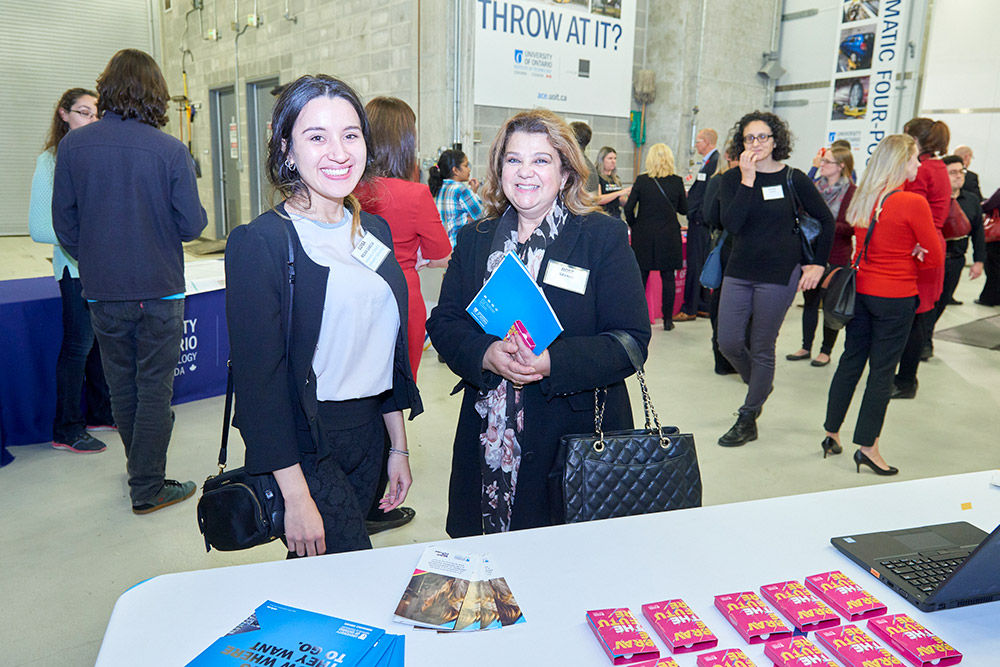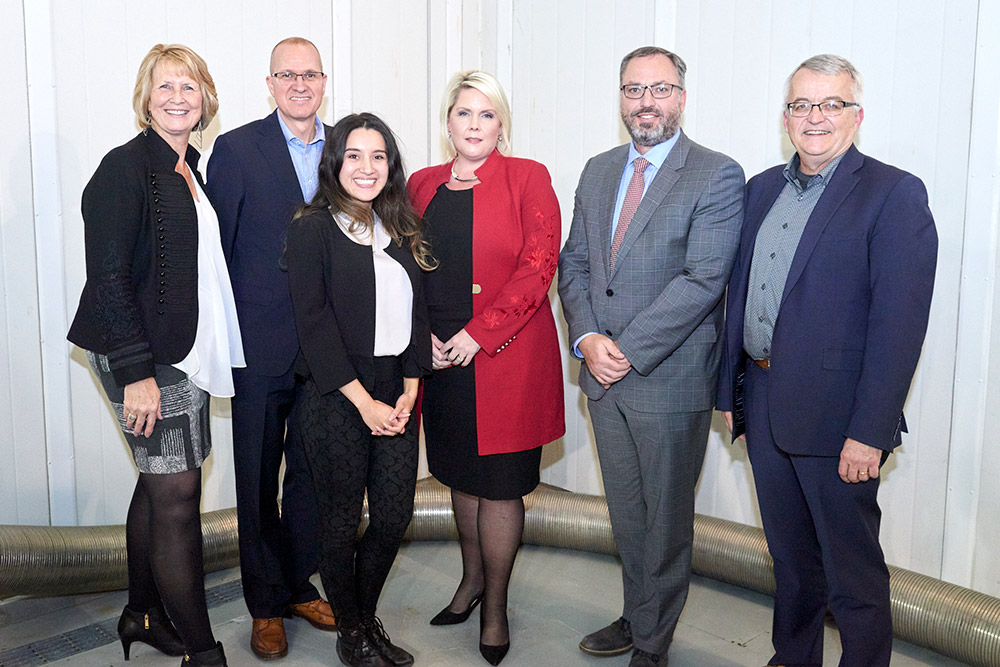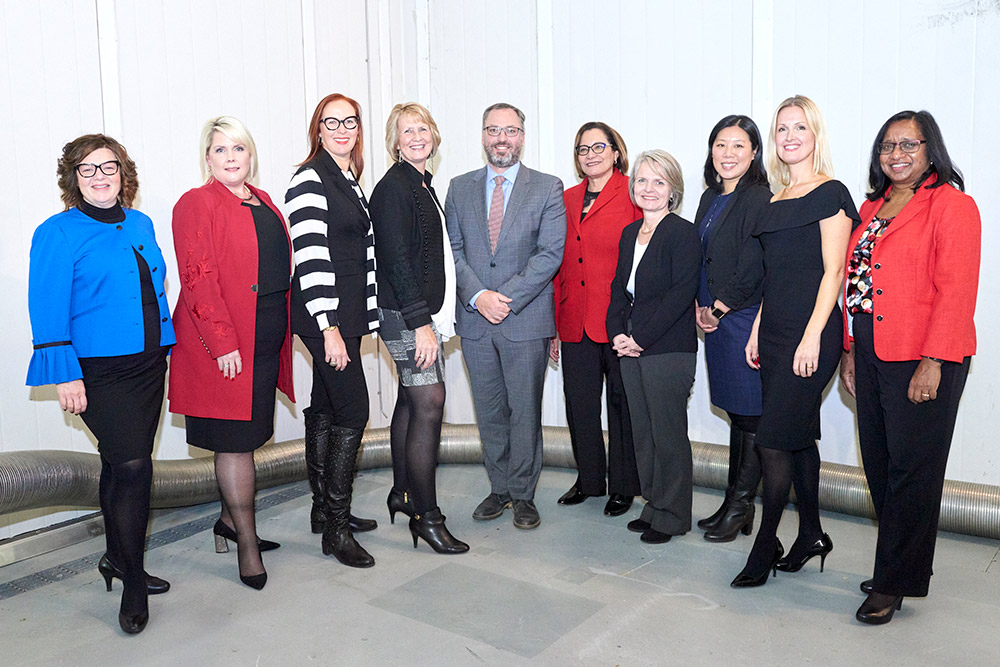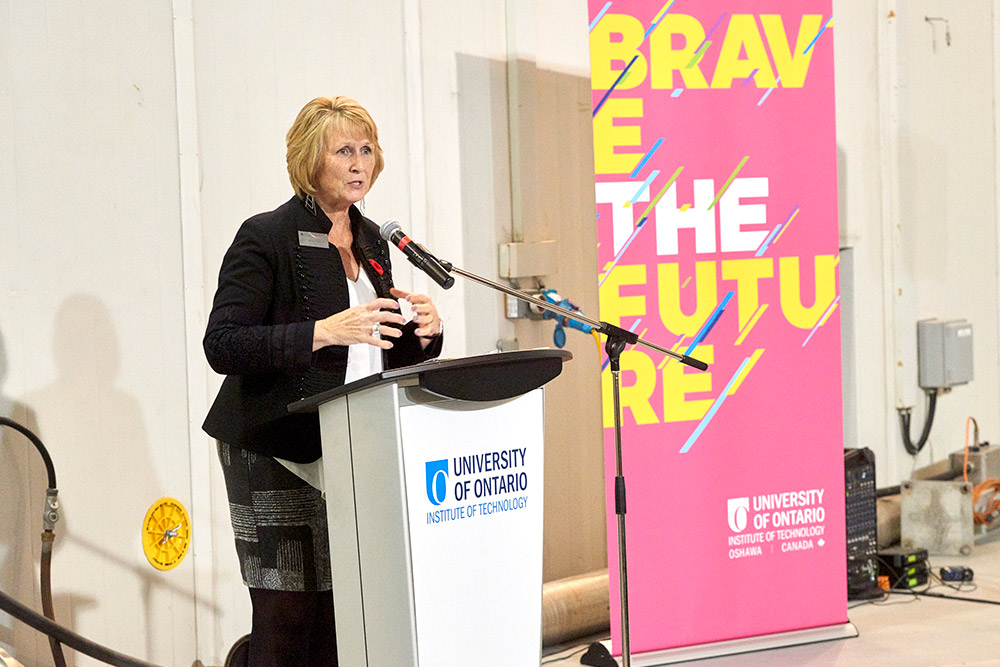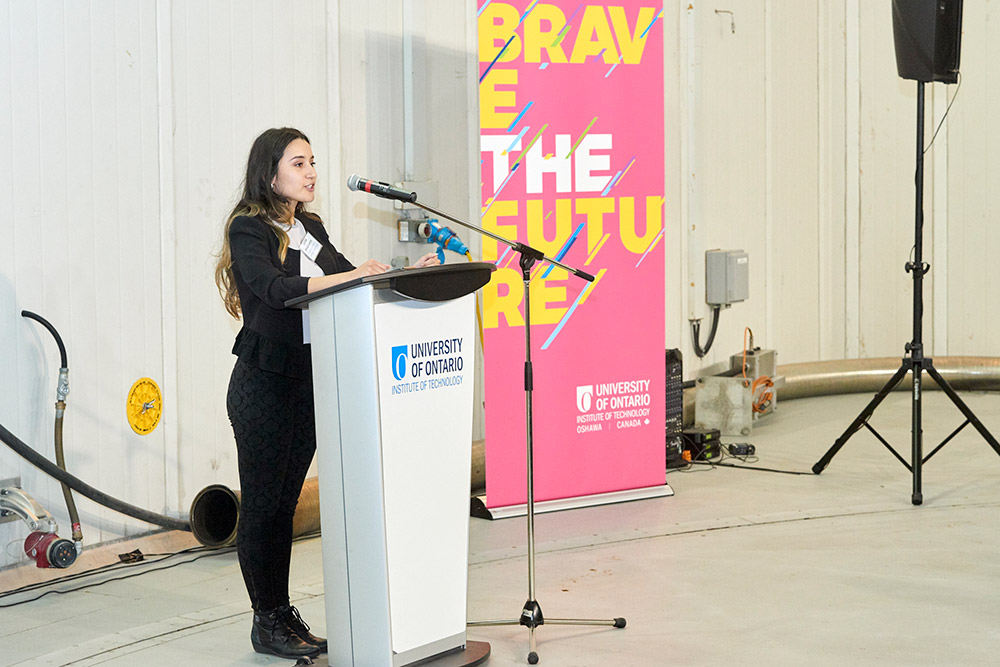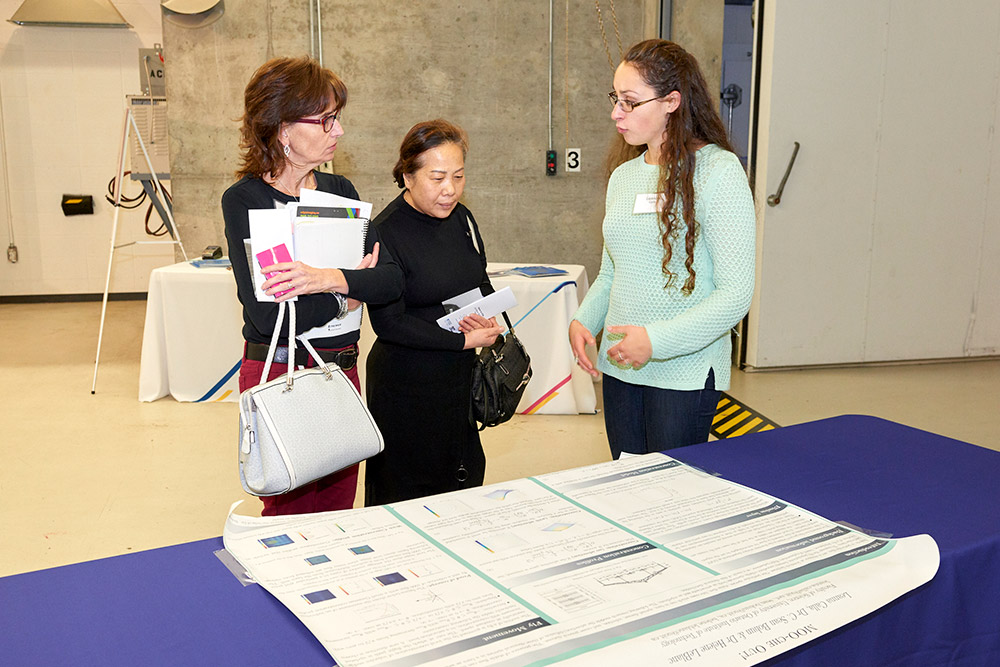University building a supportive culture for women in STEM disciplines
November 13, 2018
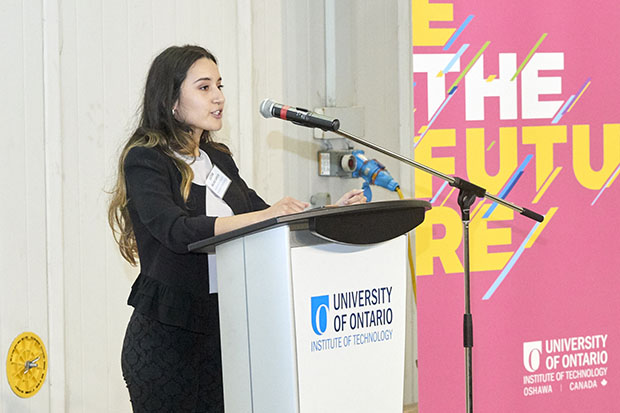
“If a young woman told you she wanted to be a nuclear engineer, or an astrophysicist, or a networking analyst, what would you say to her?”
The answer, of course, should be simple and straightforward: unwavering support and encouragement for the student’s choice.
Unfortunately, young women have historically encountered systemic hurdles on their academic journeys. Doubts have been raised through negative stereotypes, instances of gender harassment, sexism and a general lack of female role models in the fields of science, technology, engineering and mathematics (STEM).
Luisa Rojas Garcia came to Canada in 2013 from her native Colombia, dreaming of pursuing a degree in computer science. No such program was available in her home country. She enrolled at University of Ontario Institute of Technology and received her degree in 2017 as just one of two women in her graduating class.
“There were no female Computer Science professors, so there were no female role models during my academic journey,” says Rojas Garcia. “It was a very solitary feeling. At times, my voice wasn’t being heard. I confided my feelings to one of my female Teaching Assistants and found out that she too had similar experiences. In an attempt to remedy this, we created a student-run group of women in STEM that would connect and provide support to one another.”
The student group was an immediate success. And Rojas Garcia quickly discovered she was not alone.
“We should all be able to explore ourselves freely and embark upon any field, regardless of gender,” says Rojas Garcia. “But gender bias continues to be a prevalent issue. My hope is to one day even the playing field for young and aspiring women wishing to pursue careers in STEM.”
Now into her second year as a master’s degree student at the university, Rojas Garcia sees things starting to evolve. Recognizing there remains a gender gap of women participating in STEM-related post-secondary education, the University of Ontario Institute of Technology is helping drive part of the solution toward increasing gender parity in STEM careers.
On November 7, the university launched the Women for STEM program.
“We have committed to raising $100,000 this year to provide a $5,000 entrance scholarship to 20 women enrolling in STEM programs in 2019,” states Women for STEM Council Chair, Nancy Shaw. “These recipients will also be paired with a mentor throughout their first year of study.”
The program received its first corporate gift from nuclear components and fuel supplier BWXT Nuclear Energy with a five-year commitment of $5,000 annually. In addition, the Ajax-Pickering-Whitby chapter of 100 Women Who Care selected the university as its charity of choice at the organization’s November meeting by making a $5,000 donation to the scholarship fund.
All donations of $5,000 or more will be matched by the university’s Board of Governors' Matching Fund until the fund is fully subscribed.
Women for STEM program objectives include:
- Creating and promoting opportunities for young women to be exposed to and explore STEM-related activities during elementary and secondary school through community outreach activities.
- Providing role models and mentors during the recruitment stage, university experience and after graduation in the workplace.
- Providing financial support through scholarships to remove monetary barriers and improve access to a university education.
- Developing and hosting a Women for STEM Leadership Summit in 2019.
“It’s an exciting development,” says Rojas Garcia. “There’s been terrific progress so far and there’s still work to be done. I invite everyone to support women, believe in them, and have them believe in themselves as well.”
9 > 1